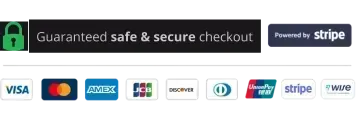HLTA stands for Higher Level Teaching Assistant. It’s a role that goes beyond the regular duties of a teaching assistant, focusing on advanced support in classrooms. But how do you become a HLTA? The answer: HLTA Courses. These courses are designed to provide the skills and knowledge needed to excel in this field.
Higher Level Teaching Assistant Courses are an excellent starting point for anyone keen on expanding their teaching career or looking for a more profound role in educational support. They offer structured training that addresses real-world classroom scenarios. This guide aims to shed light on the immense potential of these courses, helping you make an informed decision on your educational journey.
Table of Content
- Why Become a HLTA?
- What is HLTA Status?
- Are HLTA Courses Recognised?
- Can You Be a HLTA Without a Qualification?
- Roles and responsibilities of an HLTA
- The Importance of HLTA & Selecting the Right Course
- Online vs Offline courses & types of Assessments
- Who Needs to Do HLTA Course?
- How Long Do HLTA Courses Last?
- How Long Do these Courses Take?
- Is the HLTA Course Difficult?
- How Much Do HLTA Courses Cost?
- Conclusion
- FAQ
Let’s get started!
Why Become a HLTA?
Becoming a Higher Level Teaching Assistant is more than just a job; it’s a rewarding career choice with numerous benefits. At the heart of the role is the opportunity to directly impact students’ lives. As a HLTA, you support students’ daily learning journeys, fostering their academic growth and shaping young minds. Beyond the immediate rewards, These courses provide a pathway for career advancement in the educational sector.
By becoming certified, you open doors to further opportunities and equip yourself with essential skills like lesson planning, student assessment, and classroom management. These competencies are invaluable and transferable to various facets of life. Moreover, the demand for HLTAs ensures job security in an ever-important educational landscape.
And let’s not forget the work-life balance; the school hours often allow HLTAs to maintain a harmonious balance between professional commitments and personal time. So, if making a difference in education while building a stable career sounds appealing, Higher Level Teaching Assistant courses are worth considering.
What is HLTA Status?
HLTA stands for Higher Level Teaching Assistant. This status is recognised in many educational settings. It signifies that a teaching assistant has met specific professional standards. It’s more than just assisting in the classroom. It’s about taking on advanced roles and responsibilities.
Actually, HLTA Courses are designed to elevate teaching assistants. They offer advanced teaching techniques, child development, and curriculum understanding training. After completing these courses, teaching assistants can take on more complex roles. This can include leading whole-class or small-group lessons under the supervision of a teacher.
Moreover, gaining HLTA status is a big step up in education. It showcases a commitment to professional development. And it opens doors to new opportunities in the education sector. Higher Level Teaching Assistant Courses are the way to go for those keen on making a more significant impact in students’ lives. They pave the path for a richer, more involved role in the classroom. And they ensure that students benefit from the expertise of trained professionals at every level.
Are HLTA Courses Recognised?
When enhancing your skills in the educational field, HLTA Courses stand out. But many wonder, are these courses widely recognised? The answer is a resounding yes. HLTA, which stands for Higher Level Teaching Assistant, is a professional recognition in education. Many institutions, especially within the UK, value the credentials obtained from Higher Level Teaching Assistant Courses.
Besides, completing a Higher Level Teaching Assistant Course elevates your expertise and opens up various educational opportunities. Schools look for certified Higher Level Teaching Assistants to ensure they have staff with comprehensive knowledge and abilities to support classroom teachers. This recognition translates into trust. When schools see the Higher Level Teaching Assistant qualification, they know they’re hiring someone who’s undergone rigorous training.
In short, if you’re considering advancing in the educational sector, These Courses are a valuable and recognised stepping stone. Investing time and effort into this training will undoubtedly benefit your career.
Can You Be a HLTA Without a Qualification?
Becoming a Higher Level Teaching Assistant is an aspiration for many in the teaching profession. However, whether one can achieve this status without official qualifications often arises. The short answer is no. You typically need to undergo specific Higher Level Teaching Assistant Courses to be recognised. These courses equip candidates with the necessary skills and knowledge to fulfil their roles effectively.
Furthermore, these courses are designed to cover a wide range of topics. These topics help future Higher Level Teaching Assistants understand advanced classroom techniques, child psychology, and more. Without this training, someone might lack the required depth to cater to student’s diverse needs.
Remember, the aim is to unlock potential in students and the HLTAs. To ensure that this is achieved, Higher Level Teaching Assistant Courses play an integral role. If you aspire to become an expert, consider these courses a crucial stepping stone to a fulfilling career.
Roles and Responsibilities of an HLTA
Higher Level Teaching Assistant (HLTA) Courses are essential in professional development for educational professionals. When you complete these courses, you enhance your skill set and career. So, what are the roles and responsibilities of an HLTA? Let’s dive in.
- Supporting Teachers: A Higher Level Teaching Assistant primarily helps teachers. They assist in managing the classroom. This includes setting up learning resources and creating a positive environment for students.
- Teaching: Unlike regular teaching assistants, HLTAs can also take complete control of a class. In the absence of a teacher, they might lead a lesson. They are equipped with the necessary skills, thanks to the courses.
- Student Assistance: HLTAs work closely with students. They provide extra support to those who need it. This could be in the form of one-on-one sessions or small group lessons. Their goal? To ensure every child has an equal chance at success.
- Assessments: HLTAs play a role in evaluating students. They help mark assignments and provide feedback. This feedback is crucial. It helps teachers understand a student’s progress.
- Planning: A Higher Level Teaching Assistant collaborates with teachers on lesson plans. Their insight ensures the lesson is compelling and engaging.
- Professional Development: HLTAs are encouraged to continue their learning. HLTA courses are just the start. They should attend workshops, seminars, and further courses. This keeps their skills sharp.
- Communication: HLTAs bridge the gap between teachers, students, and parents. They communicate any concerns or updates. A crucial part of their role is ensuring everyone is on the same page.
In conclusion, the role of an HLTA is multifaceted. They wear many hats, from educators to communicators. HLTA courses prepare them for these tasks, offering a foundation of knowledge and skills.
The Importance of HLTA in the Modern Educational Landscape
Today’s world of education is evolving rapidly. Amidst these changes, HLTA Courses stand out as a beacon of hope and a tool for empowerment. Why? Let’s delve into the importance of HLTA in the contemporary educational scene.
- Empowering Educators: At its core, HLTA Courses aim to empower educators. They provide a deep understanding of the teaching process. This allows teachers with the necessary tools to support students more effectively. Every teacher equipped with HLTA training can reach their potential in the classroom.
- Tailored to Modern Needs: The curriculum of HLTA Courses is built around today’s educational demands. The world is changing, and so is the classroom environment. These courses understand this. They offer skills and knowledge that match the dynamic needs of current students.
- Bridging the Gap: Students learn in different ways. Some require special attention or different teaching approaches. Higher Level Teaching Assistant Courses train educators to identify these needs. By doing this, teachers can help bridge the learning gap, ensuring no student is left behind.
- Promotion of Lifelong Learning: One of the hallmarks of a great educator is the passion for continuous learning. HLTA Courses focus on student learning and emphasise the importance of personal growth for educators. Teachers pursuing HLTA training often become lifelong learners, eager to adopt new strategies or insights into their profession.
- Boosting Confidence: Knowledge is power. As educators complete their HLTA Courses, they often have renewed confidence. They know they have the best tools and strategies to handle the classroom’s challenges. This confidence directly impacts their teaching, leading to better outcomes for students.
Selecting the right HLTA course
Making the right choice regarding HLTA Courses can be a game-changer for your educational journey. But with so many options, how do you pick the best one for your needs? Let’s break it down.
- Understand Your Goals: Before diving in, understand why you want to take an HLTA course. Are you looking to improve your skills? You may be seeking career advancement. Knowing your goals will help you find a course tailored to your needs.
- Research Institutions: Not all institutions offer the same quality of training. Look for institutions with a strong reputation. Read reviews, ask for recommendations, and check their credentials.
- Course Content: The content of the course matters. Review the syllabus or course outline. Ensure it covers the areas you’re interested in and aligns with your objectives.
- Duration and Flexibility: Some HLTA Courses are short and intense, while others might be longer with a more flexible schedule. Depending on your other commitments, find a course that fits your timeline.
- Cost and Financial Aid: Courses can vary in price. While investing in your education is essential, ensure you’re getting value for your money. Some institutions also offer financial aid or payment plans, so it’s worth asking.
- Support and Resources: A good course doesn’t end just when the class ends. Look for courses offering post-course support, resources, or networking opportunities.
By selecting the right course, you’re unlocking a world of potential. Invest time in research, and it’ll pay off in the long run.
Online vs Offline courses: Which is right for you?
HLTA Courses have become a crucial stepping stone for many educators. But a significant choice awaits: online or in-person?
Let’s start with online Courses. These are flexible. You can learn at your own pace from the comfort of your home. No commute is required. This means saving time and money. Online courses might be your best bet if you have other commitments, like a job or family duties.
On the other hand, Offline Courses offer a distinct experience. There’s face-to-face interaction. You can ask questions on the spot. Some people find that being in a classroom setting helps them focus better. Plus, networking with peers can lead to valuable connections in the future.
Therefore, the choice between online and offline Courses comes down to your lifestyle and learning preferences. Reflect on what environment will help you thrive and make the most of the course. Whatever you choose, remember that both methods can unlock your potential in the field of education.
Common Types of Assessments in HLTA Courses
HLTA courses are designed to offer potential teaching assistants a strong foundation in education. And like any well-rounded educational program, assessments play a crucial role. Let’s dive into the common types of assessments you might encounter:
- Written Assignments: These are often essays or short-answer questions. They test your understanding of course material. It’s essential to answer them clearly and concisely.
- Observations: Trainers might observe you working with students. They assess how you interact, guide, and support pupils. This provides a real-world gauge of your teaching abilities.
- Practical Tasks: You might design lesson plans or create teaching resources here. These tasks display your creativity and practical teaching skills.
- Reflections and Journals: Keeping a regular journal allows you to reflect on your experiences. Trainers can gauge your ability to analyse your actions and improve upon them.
- Multiple-Choice Quizzes: These are quick tests on specific topics. They help ensure that you grasp key concepts and facts.
HLTA courses are designed to offer potential teaching assistants a strong foundation in education. And like any well-rounded educational program, assessments play a crucial role. Let’s dive into the common types of assessments you might encounter:
- Written Assignments: These are often essays or short-answer questions. They test your understanding of course material. It’s essential to answer them clearly and concisely.
- Observations: Trainers might observe you working with students. They assess how you interact, guide, and support pupils. This provides a real-world gauge of your teaching abilities.
- Practical Tasks: You might design lesson plans or create teaching resources here. These tasks display your creativity and practical teaching skills.
- Reflections and Journals: Keeping a regular journal allows you to reflect on your experiences. Trainers can gauge your ability to analyse your actions and improve upon them.
- Multiple-Choice Quizzes: These are quick tests on specific topics. They help ensure that you grasp key concepts and facts.
Who Needs to Do HLTA Course?
HLTA Courses are designed for teaching assistants looking to enhance their skills. This course is ideal if you already work in a school setting and aim to take on more responsibility. It offers the knowledge and tools required to support learning at a higher level.
Additionally, educational institutions value staff who can demonstrate advanced skills in classroom management, planning, and support. Those who aspire for career progression in the educational sector will find the HLTA Courses beneficial. It provides a pathway to higher-level positions, boosting your professional profile.
In short, if you are a dedicated teaching assistant aiming for growth, or someone who desires to delve deeper into the world of education, the HLTA Course is a stepping stone to unlocking your full potential.
How Long Do HLTA Qualification Last?
The HLTA qualification is a level four credential. Once you’ve obtained it, it’s lifelong, meaning there’s no need for renewal or periodic reexamination. Once earned, you can continuously list the HLTA certification on your resume.
How Long Do HLTA Courses Take?
Well, it depends. When you decide to join a distance learning program, it allows you to study at your convenience. You can choose the time and place that aligns with your preferences, making it particularly attractive to those aiming for an HLTA qualification while juggling their current roles as teaching assistants.
A significant advantage of this learning method is its self-paced nature, allowing every student to move through the material on their terms. However, there are standard timeframes to anticipate for finishing a HLTA course.
Is the HLTA Course Difficult?
Many individuals wonder about the difficulty level of HLTA Courses. Let’s dive into this topic to give a clear perspective.
Firstly, any course’s difficulty is subjective. What may seem tricky for one person could be easy for another. HLTA Courses, like any educational pursuit, require commitment and effort. They are designed to be comprehensive and offer deep insights into teaching assistance.
However, it’s essential to know that Higher Level Teaching Assistant Courses provide thorough guidance and support. They come equipped with resources and materials to help students grasp concepts. And, with dedication, most learners find their rhythm and pace.
How Much Do HLTA Courses Cost?
HLTA Courses are an investment in your future as a higher-level teaching assistant. The cost can vary based on several factors. The variation in cost often depends on the course’s duration, content, and the institution offering it.
Several institutions might provide financial assistance or payment plans. It’s a good idea to research different course providers and compare prices. While cost is a factor, the course’s quality, content, and recognition are crucial. Investing in a reputable course can offer a better return regarding knowledge, skills, and employment opportunities.
Importantly, pursuing courses is a step towards enhancing your teaching career. The investment made today can lead to better job prospects and satisfaction in the future.
Conclusion
HLTA courses are a valuable investment in one’s professional journey. They empower teaching assistants with the expertise and confidence to take on more significant educational challenges. By understanding and applying the knowledge gained from these courses, teaching assistants can make a difference in students’ lives. If you want to elevate your career and make a lasting impact, HLTA courses are the key to unlocking your potential.
To get a deeper understanding, enrol in our Level 4 Certificate for Higher Level Teaching Assistants course. Let’s flourish your career opportunities.
FAQ
How much does a higher-level teaching assistant earn?
The average salary for a HLTA in the UK is £23,000 per year. However, the actual salary can vary depending on experience, qualifications, and the type of school. For example, HLTAs working in private schools typically earn more than those working in state schools.
What is a higher-level teaching assistant?
An HLTA is a teaching assistant who has completed a higher level qualification. This qualification typically covers child development, teaching methods, and assessment. HLTAs have a more advanced responsibility than level 3 teaching assistants and can often take on teaching duties.
What is a Hlta qualification?
Many different courses can lead to HLTA status. These courses typically take a few weeks to months to complete and are delivered by various providers, including colleges, universities, and training organisations.
What is the Hlta course in the UK?
The HLTA course in the UK is a Level 4 qualification designed to equip teaching assistants with the skills and knowledge they need to work at a higher level. The course covers various topics, including Child Development, Teaching methods Assessment, Special educational needs Inclusion, Learning support, etc.
What is the Hlta equivalent to?
The HLTA qualification is equivalent to a Level 4 apprenticeship in Education and Childcare. This means that employers recognise it and can lead to progression into higher level teaching roles.
How to Become a Teaching Assistant
What qualifications do I need to be a teaching assistant UK?
To become a teaching assistant in the UK, you do not need formal qualifications. However, many employers prefer hiring candidates with a Level 2 or 3 qualification in supporting teaching and learning in schools.
What qualifications do you need for a higher level teaching assistant?
To become a HLTA, you must have a Level 2 or 3 qualification in supporting teaching and learning in schools, and you must also have at least six months of experience working as a teaching assistant. In addition, you may need to complete a HLTA qualification.
Can higher level teaching assistants teach?
Yes, HLTAs can teach. They can deliver lessons to whole classes, small groups, or individuals. They can also plan and assess studies and support teachers with their day-to-day work.
Is there level 4 teaching assistant?
Yes, there is a Level 4 teaching assistant qualification. This qualification is designed for teaching assistants wanting to advance to more senior roles. The course covers various topics, including Leadership and management, Special educational needs, Inclusion, and School improvement.
What is a Level 3 teaching assistant?
A Level 3 teaching assistant is a teaching assistant who has a Level 3 qualification in supporting teaching and learning in schools. This qualification typically covers child development, teaching methods, and assessment. Level 3 teaching assistants have a range of responsibilities, such as supporting teachers in the classroom, helping pupils with their learning, and providing pastoral care.




 " alt="What is safeguarding vulnerable adults?" />
" alt="What is safeguarding vulnerable adults?" />
 " alt="3 Essential Communication Skills for Health and Social Care" />
" alt="3 Essential Communication Skills for Health and Social Care" />
 " alt="8 Caldicott Principles: The Key to Data Protection Explained" />
" alt="8 Caldicott Principles: The Key to Data Protection Explained" />

